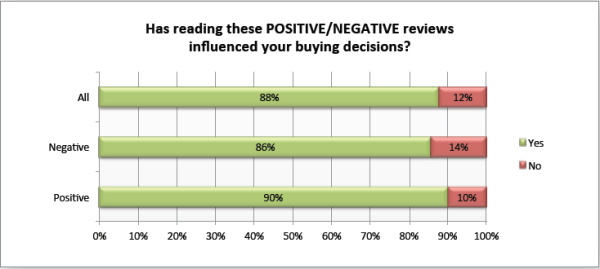How Online Reputation impacts your revenue and how to improve it
 Zoox Smart Data - 22 de October de 2020.
Zoox Smart Data - 22 de October de 2020.
In 2016, professor Michael Luca, from Harvard Business School, published an article on Online Reputation Management, where he compared the position of companies on the Yelp review site with the revenue generated over the years. The result showed that increasing 1 star on review sites can generate between a 5-9% increase in sales.
Increasingly relevant, Online Reputation Management is a fundamental sector for a company’s communication team. When we talk about Reputation Marketing, the main objective is to improve the reviews on websites and review apps, such as Tripadvisor, Google Business, Foursquare, Booking, etc.
The Importance of Online Reputation Management

Recent studies have shown that 90% of consumers research the reputation of a business before using it. They use both generic sites, such as Google and Facebook, but also industry-specific sites like TripAdvisor and GetApp.
That is, there is no point in doing a fantastic job in creating leads if it does not guarantee that the online reputation is positive. Michael Luca’s study found other important information: consumers prefer to buy from establishments with more reviews than from an establishment with few reviews, even if they are better.
Other studies reinforce these claims. 88% of consumers trust online reviews as much as personal recommendations. 72% guarantee that they will only purchase if they have seen positive reviews.
6 Tips to Improve Your Online Reputation
Online Reputation Management must be a rigorous component of the marketing strategy. The company must take the following steps to proactively manage its online reputation:
- Find tools that automatically monitor the review sites relevant to your industry and alert you when new reviews are published, which will allow you to get involved as quickly as possible with reviewers.
- Thank positive reviewers and reinforce key points where appropriate.
- Negative assessments must also be recognized. Thank the reviewer for the feedback, when constructive, and try to contact him to find a way to mitigate this negative experience whenever possible. Some reviewers will delete your negative comments as soon as they realize that you were sincere and tried to find a positive solution.
- Monitor the web for mentions of your brand and products. Opinions and feedback are not just on review sites, but on social media accounts, blogs, and other public panels. You can use a tool to track these mentions.
- Generate positive comments. If you are looking for ways to learn from your customers and build your online reputation, you must incorporate continuous customer feedback across multiple touchpoints of the customer experience. Provide them with different ways to provide feedback.
- When collecting this information, look for trends, patterns, and insights. How is your performance improving? Is it different in several places?







Comments